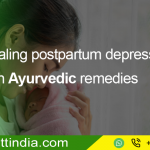In the realm of alternative medicine, Ayurveda has emerged as a holistic approach to health and well-being. With its roots deeply embedded in ancient Indian traditions, Ayurveda has garnered attention for its natural therapies and comprehensive approach to various health conditions. One such condition that has intrigued both practitioners and patients alike is Parkinson’s disease. This article delves into the question: Can Ayurveda provide a cure for Parkinson’s disease? Examining the principles, therapies, and ongoing research, we aim to shed light on the potential of Ayurveda in managing and alleviating the symptoms of Parkinson’s disease.
You will be interested on: What are the most popular Ayurvedic treatments in Kerala?
Understanding Parkinson’s Disease
Parkinson’s disease is a progressive neurological disorder characterized by a gradual loss of dopamine-producing cells in the brain. This leads to a range of symptoms, including tremors, rigidity, bradykinesia (slowness of movement), and postural instability. While modern medicine focuses on symptomatic relief through medications and therapies, Ayurveda takes a holistic approach, addressing not only the symptoms but also the underlying imbalances in the body.
The Ayurvedic Approach to Parkinson’s Disease
- Dosha Imbalance: Ayurveda recognizes the three doshas Vata, Pitta, and Kapha—as the fundamental energies that govern the body. Parkinson’s disease is often associated with an imbalance in the Vata dosha. Ayurvedic practitioners aim to restore harmony to the doshas to alleviate symptoms.
- Panchakarma Therapy: Panchakarma, a cornerstone of Ayurveda, involves a series of therapeutic procedures to detoxify and rejuvenate the body. While it may not offer a cure, Panchakarma is believed to enhance the overall well-being of individuals with Parkinson’s disease by eliminating toxins and improving energy flow.
- Herbal Remedies: Ayurvedic herbs play a crucial role in managing Parkinson’s symptoms. Ashwagandha, Brahmi, and Mucuna pruriens are among the herbs known for their neuroprotective and anti-inflammatory properties. These herbs may help in slowing down the progression of the disease.
- Dietary Modifications: Ayurveda places significant emphasis on diet in maintaining balance. A personalized diet for individuals with Parkinson’s disease may include anti-inflammatory foods, warm and easily digestible meals, and specific herbs to support nervous system function.
- Yoga and Pranayama: Incorporating yoga postures and pranayama (breathing exercises) can be beneficial for individuals with Parkinson’s disease. These practices focus on enhancing flexibility, improving coordination, and reducing stress, contributing to overall well-being.
Can Ayurveda Cure Parkinson’s Disease?
While Ayurveda offers a holistic approach to managing Parkinson’s disease, it is essential to clarify that it does not claim to provide a cure. Parkinson’s is a complex neurological disorder, and its management often requires a multi-faceted approach. Ayurveda, in conjunction with conventional medical treatment, can be a complementary approach to enhance the overall quality of life for individuals living with Parkinson’s.
Ongoing Research and Case Studies
Several studies and case reports have explored the potential benefits of Ayurveda in managing Parkinson’s disease symptoms. While research is still in its early stages, preliminary findings suggest that Ayurvedic interventions, when integrated with conventional treatment, may offer positive outcomes. It is crucial to note that individual responses to Ayurvedic therapies can vary, and further research is needed to establish a more concrete understanding of the efficacy of Ayurveda in Parkinson’s disease management.
Transitioning to a Holistic Lifestyle
- Mind-Body Connection: Ayurveda emphasizes the interconnectedness of the mind and body. Practices such as meditation and mindfulness can contribute to mental well-being, potentially easing some non-motor symptoms associated with Parkinson’s disease, such as depression and anxiety.
- Holistic Wellness: Ayurveda promotes overall wellness by addressing various aspects of an individual’s life, including diet, daily routines, and emotional balance. This comprehensive approach aligns with the philosophy of treating the person as a whole, not just the symptoms of the disease.
- Individualized Care: One of the strengths of Ayurveda lies in its personalized approach to care. Ayurvedic practitioners tailor treatments to an individual’s unique constitution, considering factors such as age, lifestyle, and the severity of symptoms.
Conclusion
In the pursuit of holistic well-being, Ayurveda emerges as a promising avenue for individuals navigating the challenges of Parkinson’s disease. While it may not offer a cure, Ayurveda provides a comprehensive and personalized approach to managing symptoms and improving overall quality of life. The integration of Ayurveda with conventional medical treatments allows individuals to explore complementary avenues for holistic wellness. As ongoing research continues to unravel the potential benefits, Ayurveda stands as a beacon of hope, offering a path towards a more balanced and fulfilling life for those living with Parkinson’s disease. Get an effective Kerala ayurveda package by filling up the form below.
Visit Mattindia for Ayurveda Panchakarma and Rejuvenation Treatment.
You can reach us at +91 9072344343








